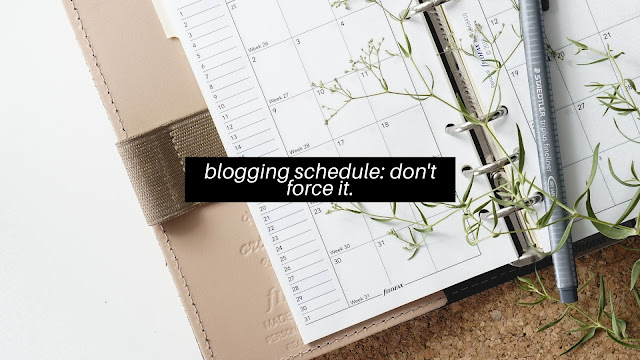Stress & Burnout
Let's face facts, a lot of us put pressure on ourselves to do the best and be the best. If that means putting in hours and hours of extra time on a project or a job then we are willing to burn ourselves out to achieve our goals. However, taking this mentality into our every single day is surely unhealthy. The added pressures and stress that we are putting upon ourselves is exhausting and seeing a culture that glorifies this does worry me. I get it, it can be empowering to talk about being a 'girl boss' and talk about the 'hustle', but some of us can't keep up with it and can burn out from trying to match the ideals of hustle culture. If you want to use 'hustle' posts on social media (not going to lie, for some time I pinned a lot of these posts onto a board titled 'girl boss' on Pinterest) then go for it! If it empowers you to work towards your goals, more power to you! However, don't let the hustle rule your life and be sure to listen to your mind and body if you're feeling overworked or burned out.
Stress is bad, we all know that. The symptoms that come from stress and burnout can be both mental and physical and can be mild or very severe. You can become emotionally drained, you could lose sleep, you could get sick due to the effects of stress on the immune system, and your performance on the job can even worsen, meaning that those extra hours you're putting in could reap very little reward anyway.
Guilt
Not being able to keep up with hustle culture can be a massive source of guilt for some, and I have experienced this guilt majorly. As a depressed person, sometimes just getting through a day of work can be tough and I can burn out quite easily. I also have spells where I'm on top of everything and accomplishing all I want to and more. This fluctuation of my ability to sit for long hours at my desk or to write a lot or to revise for long hours can be incredibly frustrating. Some days I can get up in the morning, spend eight hours in the library, go home and do some more work at home. Then, some days I can't get up in the morning, I do a bit of work from home before I get tired or distracted and I have to stop. On the unproductive days, the guilt kills me. When I lie in bed at night I tend to ask myself what I have accomplished today, and sometimes the answer is 'almost nothing'. I feel guilty and useless and I spiral.
When was I thriving? When was I going to bed each night with a sense of accomplishment and waking up every morning ready to work and do something great? When I was working a 9-5 job and spending my evenings on hobbies and not hustles. I know, it's basic. The thing is, my work day was structured and set. I would go into work at a certain time and spend my morning hours productively in the office, and just as my productivity was lagging it was time for lunch. I would return to my desk refreshed after eating my lunch outside or going to an exercise class and I would spend my next few hours at work getting stuff done. After work, I would write or exercise or simply watch TV or read with a glass of wine. I was thriving.
Others have talked about the guilt that comes from not being able to keep up with crazy long hours, lots of projects and a side-hustle or three (See: Washington Times & i-d.vice) so I know I'm not the only one out here asking myself about the costs of the 'hustle'. It can leave you feeling like you're not good enough and that you're not working as hard as everybody out there. Doing something that isn't goal-related or on your to-do list isn't a crime, and you're not any less productive for doing it. I've started to consider some of my hobbies as 'non-productive-productivity' tasks.
Non-productive-productivity
When you start to consider non-work related tasks as productive, it can relieve some of the guilt of not 'hustling'. Well, it helps me anyway. For example, after listening to the audiobook Atomic Habits by James Clear, I became inspired and motivated to start building habit formation into my routine, starting with listening to an audiobook chapter every day. I started building some of my hobbies or interests into habits which I could set some time aside for each day, and I classed these habit-building tasks as 'non-productive-productivity' tasks. It's a fulfilling way of using your time, and you can choose habits which enhance your skills, hobbies or interests. If you've always wanted to improve at an instrument, try to play for a set amount each day. If you love reading, set aside some time each day to read. If you want to expand your knowledge and keep up to date with current affairs, set some time aside to read or watch the news. Even journalling, colouring or just spending time with your pet can be scheduled in as an essential slot of time during your day. You get the satisfying feeling of ticking off an item on your to-do list without having to burn yourself out for it!
The power of having a day off
If you have the opportunity to have a true day off, don't guilt yourself into skipping it. If you go too long without giving yourself a proper rest then you will eventually burn out and one day off could be replaced with having to write off days or even a week to recuperate. Take that day off, take that afternoon off, have a long bath or go to the cinema. You don't have to be on the go 24/7 to be successful! Treat yo self!
I hope that you were able to take something from this post! It's good to work hard but it's also important to know when to stop. When was the last time you took a proper break?
I hope that you were able to take something from this post! It's good to work hard but it's also important to know when to stop. When was the last time you took a proper break?















